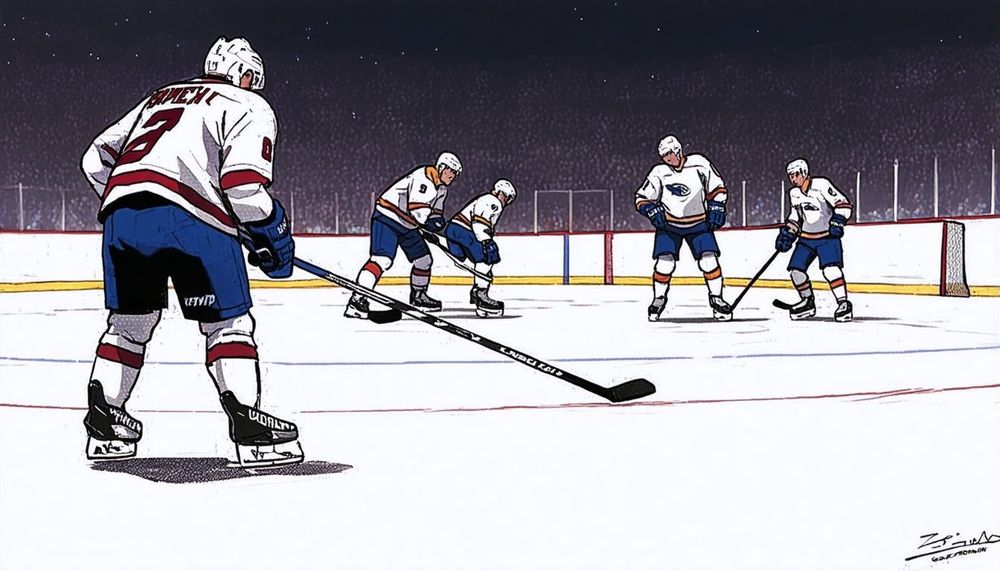Evaluating High-Pressure Situations in the NHL: The Path Forward for Key Teams

Pressure manifests differently across teams in the NHL. While some organizations strive for improvement with the hope of reaching playoff contention, others grapple with immense expectations to clinch the Stanley Cup. For several teams, the discourse surrounding their performance becomes more difficult to navigate with each passing season that fails to bring championship success. This article delves into a selection of notable franchises that may need to consider significant changes due to repeated disappointments in the postseason.
The Toronto Maple Leafs are facing renewed scrutiny after another postseason exit, as expectations remain high. This offseason, they parted ways with Mitch Marner, further complicating their approach moving forward. Despite retaining star players such as Auston Matthews and William Nylander, and securing John Tavares and Matthew Knies, questions linger about the team's defense and goaltending. With Morgan Rielly stepping into a larger role and goaltenders Joseph Woll and Anthony Stolarz needing to maintain their health, the Maple Leafs have made moves aiming to transform into a more physical team. Whether these alterations will yield success remains to be seen, and another unsuccessful campaign could generate calls for drastic changes within the organization.
The New York Rangers present another intriguing case, as they navigated last season with an eye toward deep playoff aspirations. Following a lackluster season, the organization saw turnover in management, resulting in James Dolan's strategic decision-making leading to trades aimed at recalibrating their roster. The acquisition of J.T. Miller and the signing of Vladislav Gavrikov shows a commitment to altering the team's dynamics, even as staples like Mika Zibanejad, Artemi Panarin, Adam Fox, and Alexis Lafrenière remain integral to their lineup. Igor Shesterkin's presence in goal guarantees they will always have a fighting chance. However, with contracts expiring on key players like Panarin, the pressure mounts to achieve success, lest they confront major changes once a Stanley Cup eludes them yet again.
The Los Angeles Kings, despite being a solid team, have grappled with a formidable barrier in their quest for playoff progression—the Edmonton Oilers. In light of their recent exit in the playoffs, the Kings have undergone leadership changes, most notably with Rob Blake's departure and Ken Holland's ascent. Holland's strategy to integrate veteran players like Cody Ceci and Brian Dumoulin infuses experience into their defense but raises concerns about the aging roster. While younger talents such as Quinton Byfield and Brandt Clark present promising futures, a failure to advance in the playoffs could prompt difficult decisions regarding their older veterans, who have contributed significantly but may need to transition out for the team's long-term success.
The Washington Capitals find themselves at a crossroads following their previous season, where judicious acquisitions resonated well with the team's ambitions. The league's best record in the Eastern Conference this past season was driven by strategic signings, including Jakob Chychrun, designed to bolster their defense. As Alex Ovechkin continues his illustrious career in D.C., questions about the team's future intensity reverberate. If the Capitals cannot replicate their previous triumphs—let alone capture another Stanley Cup—their present trajectory might necessitate re-evaluating their roster and overall strategy, particularly in planning for life post-Ovechkin.
The Dallas Stars enter a pivotal season under the guidance of a familiar voice, Glen Gulutzan, after parting ways with Pete DeBoer following several seasons rife with playoff frustrations. The Stars reached the Western Conference Final but have not progressed further. The ongoing situation involving Jason Robertson is notable as he approaches restricted free agency. With competing teams such as the Oilers and Kings exerting pressure in the playoffs, the Stars face critical decisions regarding their financial commitments and personnel moves based on their postseason success.
The landscape surrounding the Edmonton Oilers reflects their urgency. Having come close to winning the Stanley Cup in previous seasons, the Oilers find themselves in a precarious position after their recent playoff exit to the Panthers. As their star player Connor McDavid faces the potential of free agency, the pressure to not only win the Cup but also ensure roster stability becomes paramount. Historically, the franchise has shown resilience; however, falling short again could necessitate a significant reconfiguration of their roster and long-term strategy.









